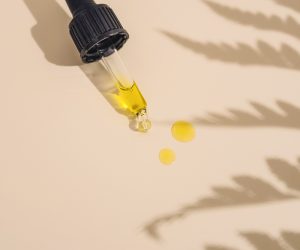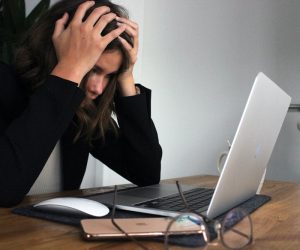
How Hard Is It to Stop Antidepressants?
Dr. Caroline Leaf – In this podcast (episode #435) and blog, I talk to clinical researcher and fellow at University College London Dr. Mark Horowitz on his own experience on psychiatric medication, the many myths surrounding antidepressants, safely withdrawing from psychiatric drugs, and so much more!
Mark works in London as a Clinical Research Fellow in the NHS and an Honorary Clinical Research Fellow at UCL while training as a psychiatry. As well as his work in this field, he has also completed a PhD in the neurobiology of depression and the pharmacology of antidepressants at the Institute of Psychiatry, Psychology and Neuroscience at King’s College London.
But Mark does more than study psychiatric medications. As he notes, “At the same time as researching the way in which antidepressants worked I have also been taking this medication since I was a medical student. It was not until 15 years later that I tried to come off this medication as I wondered whether it was responsible for the fatigue which had led to me being diagnosed with the sleep disorder, narcolepsy. When I tried to come off this antidepressant over 4 months I received a very abrupt education into antidepressant withdrawal symptoms. I experienced insomnia, panic attacks, dizziness, anxiety and low mood. This was nothing like the Woody Allen-level neurosis that had led me to start them in the first place – and I had experienced nothing like it before.
It was also something that I had not been taught about at medical school or in psychiatry training. I soon learnt by reading the academic literature available that the psychiatrists and academics at the institution I had studied at and others like them around the world had little helpful to say about withdrawal effects from antidepressants – they recommended stopping the drugs over 2 to 4 weeks, and reported that the symptoms were mild and brief.
Many prominent academics with close ties to pharmaceutical companies attacked academics and patients who complained of trouble coming off their antidepressants, accusing them of malingering, or seeking legal payments. Instead, the place where I found the most useful advice was online peer-support websites (especially Surviving Antidepressants) filled with people trying to come off their antidepressants. There I found people describing the exact same symptoms I had experienced: like me, their symptoms were neither mild, nor brief. And this was not a handful of people – instead I found tens of thousands of people with near identical complaints. None seemed to be malingerers, in it for a buck or ignorant – they all had been told by doctors that there would be no major issue in coming off their medication and all had been given unhelpful advice by their doctors to come off in just a few weeks.
Even more helpfully for me, these online groups described a better way to come off antidepressants: going down by small amounts, that become smaller and smaller as the total dose got lower, and going down to very tiny amounts before completely stopping. I am using this method to come off the antidepressant I have been on for so many years, as well as the other psychiatric drugs I ended up being prescribed, in what I now see as a prescribing cascade, where adverse effects led to more medications. Reducing my medication has greatly improved the tiredness, problems with memory and concentration that have plagued me for years (and for which I was given psychiatric and neurological explanations).”
Indeed, based on his research and experience, Mark has written an excellent paper about how to come off antidepressants that was published in The Lancet Psychiatry and widely reported. He also works with other doctors and the public how to teach people how to safely taper off antidepressants and other psychiatric medications based on his own personal and professional experiences, and the realization that he has been “misled on how difficult it is to stop psychiatric medications”. Mark has dedicated his career to “re-evaluating the other information he has taken for granted about psychiatric medications, how they work, what they are treating and what their long-term effects might be” and helping people who are suffering find ways to heal and be at peace within their own minds.
Mark is also one of the authors of the groundbreaking study on the serotonin depression myth that recently made headlines around the world. As mentioned in my interview with journalist and mental health advocate Robert Whitakerand my interview with psychiatrist, researcher and professor Dr. Joanna Moncrieff, the chemical imbalance theory has been around for a long time. From the 1970s, drug companies and many mental health professionals have largely marketed psychiatric drugs as anti-psychotic, anti-depressive, or anxiolytic (anti-anxiety)—cures combating a particular disease, notwithstanding the lack of evidence for chemical imbalances or other pathologies related to mental illness. This was recently highlighted in the groundbreaking systematic review study led by Dr. Mike Horowitz, Dr. Joanna Moncrieff and their team.
As they note in their study on the serotonin theory of depression (alongside many other mental health professionals and advocates), the chemical imbalance approach is shaped by the assumption that symptoms of depression and other mental health issues are caused by a brain chemical abnormality, and that psychotropics like anti-depressants help rectify this abnormality and improve mental health. Even though this hypothesis dominates the way we think about mental health, we have no evidence that it is the best way to understand mental issues, as Mark and his team point out. First, there is no strong evidence that mental struggles like depression, for example, is associated with any particular biochemical abnormality. Moreover, we do not know if the drugs we use work in this way, i.e. correcting biochemical imbalances. This is due to the fact that the mental health drugs we use are psychoactive. They cross the blood-brain barrier and change the normal state of the brain, which means they can change our feelings, thoughts, perceptions and even behaviors, just in the same way a substance like alcohol can (as Dr. Moncrieff discussed in our interview).
As Mark, Joanna and the other authors of the study note in their article in the journal Molecular Psychiatry, “the main areas of serotonin research provide no consistent evidence of there being an association between serotonin and depression, and no support for the hypothesis that depression is caused by lowered serotonin activity or concentrations”. If we do not have good evidence that psychiatric medications like antidepressants do not work by correcting or reversing a chemical imbalance in the brain that causes depression, it is important that we review the way we use their drugs, many of which may even cause chemical imbalances in the brain, and can have many negative side effects (like the ones Mark himself experienced) that, unfortunately, are often just assumed to be the result of the mental condition returning.
This is why he is passionate about helping people safely withdraw from these medications. As Mark notes, there is actually very little official guidance on how to stop psychiatric medication safely. There has been very little research on this subject, although, thankfully, this is changing, not least through the work done by Mark and other professionals like him.
The key thing to understand about withdrawal is that“no one should stop their antidepressant medication abruptly—this can be dangerous and is known to cause withdrawal effects, which can be severe and long-lasting in some people, especially those using the medications long-term. If anyone is considering this choice…discuss it with your doctor and, if you go ahead, to undertake a gradual and supported reduction as advised by recent Royal College of Psychiatry guidance.”
There are ways to withdraw from psychiatric drugs safely, which Mark has written extensively about including in a recent paper about how to come off antidepressants, although this should always be done under the guidance of an appropriate medical professional. When withdrawing, there are several key points to consider:
- Come off psychiatric medication SLOWLY.
- Go down in SMALL AMOUNTS. It is very important to understand that very small amounts of any kind of psychiatric medication can have large effects on the brain.
- It is important to note that with psychiatric drugs you can reduce higher doses a lot quicker than lower doses. For lower levels, people often use tapering strips or liquids to reduce the drug by very small amounts over time. This is why it is important to make smaller and smaller reductions over time as you get down to lower doses (by proportion), based on the effect these doses have on the brain.
- It is necessary to take a flexible approach as everyone’s situation and past history is different, and avoid switching between certain drugs as much as possible.
- There are different ways to decrease doses, which should be done under the guidance of a medical professional. These include dividing tablets, using a liquid version of the drug and a syringe, and using compounding pharmacies to order smaller doses or tapering strips.
There are also great sources of information like Mad in America, Rxisk, ISEPP and other patient-run websites (like the kind Mark mentions) that seek to provide people with helpful information and address all parts of the human experience, not just our biology.
To read the original article click here.






